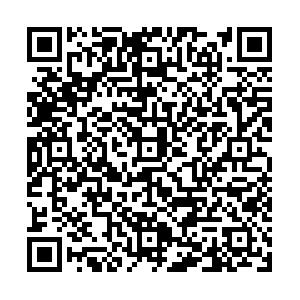Subjective sleep quality and its influencing factors in male patients with severe mental illness
-
摘要:
目的 探讨男性重性精神病患者主观睡眠质量状况及影响因素。 方法 选取江苏省扬州五台山医院2017年2月—2020年6月收治的男性重性精神病患者108例为研究对象,根据病种不同分为精神分裂症患者82例和双相情感障碍患者26例。分析患者主观睡眠质量及影响因素。 结果 精神分裂症患者主观睡眠总时间[(9.12±1.03)h]和主观入睡时间[(29.64±6.72)min]均明显高于客观睡眠总时间[(7.98±1.02)h]和客观入睡时间[(17.89±5.85)min],P < 0.01;双相情感障碍患者主观睡眠总时间[(6.72±1.67)h]明显低于客观睡眠总时间[(7.83±1.79)h],P < 0.05,而主观入睡时间[(23.52±4.87)min]明显高于客观入睡时间[(11.76±4.96)min],P < 0.01;精神分裂症患者的入睡时间、睡眠障碍因子得分[(1.32±0.18)分、(0.88±0.13)分]明显高于双相情感障碍患者得分[(0.92±0.17)分、(0.78±0.12)分],P < 0.01,而催眠药物因子得分[(0.21±0.08)分]明显低于双相情感障碍患者得分[(0.61±0.07)分],P < 0.01;主观睡眠知觉的影响因素分析发现,焦虑因子分高的重性精神病患者对自身的睡眠评价低(P < 0.01),敌对性得分低的重性精神病患者对自身睡眠的评价高(P < 0.01)。 结论 男性重性精神病患者的主观与客观睡眠状况存在差异,患者常夸大自身睡眠质量差的程度,而焦虑和敌对性等不良情绪会加重患者对自身睡眠质量的错误知觉,是影响重性精神病患者主观睡眠的危险因素。 Abstract:Objective To investigate the subjective sleep quality and its influencing factors in male patients with severe mental illness. Methods A total of 108 male patients with severe mental illness admitted to our hospital from February 2017 to June 2020 were selected as the research subjects, and they were divided according to different diseases: 82 patients with schizophrenia and 26 patients with bipolar disorder. The subjective sleep quality and its influencing factors were analysed. Results The total subjective sleep time [(9.12±1.03) h] and subjective sleep time [(29.64±6.72) min] were significantly higher than the total objective sleep time [(7.98±1.02) h] and objective sleep time [(17.89±5.85) min] (P < 0.01). The total subjective sleep time [(6.72±1.67) h] was significantly lower than the total objective sleep time [(7.83±1.79) h] (P < 0.05), whilst the subjective sleep time [(23.52±4.87) min] was significantly higher than the objective sleep time [(11.76±4.96) min] (P < 0.01). The sleep time and sleep disorder factor score of patients with schizophrenia were significantly higher [(1.32±0.18) points and (0.88±0.13) points] than those of patients with bipolar disorder [(0.92±0.17) points and (0.78±0.12) points] (P < 0.01), whilst the hypnotic drug factor score of patients with schizophrenia was significantly lower [(0.21±0.08) points] than that of patients with bipolar disorder [(0.61±0.07) points, P < 0.01]. The analysis of the influencing factors of subjective sleep perception showed that the higher the score of anxiety factor, the lower the evaluation of sleep (P < 0.01), whilst the lower the score of hostility, the higher the evaluation of sleep (P < 0.01). Conclusion The subjective and objective sleep status of patients with severe mental illness is different, and patients often exaggerate the degree of their own poor sleep quality. Moreover, negative emotions such as anxiety and hostility will aggravate patients' wrong perception of their own sleep quality, which is a risk factor affecting the subjective sleep of male patients with severe mental illness. -
Key words:
- Severe mental illness /
- Subjective sleep /
- Objective sleep /
- Influencing factor
-
表 1 精神分裂症患者主观与客观睡眠质量比较(x ±s)
项目 例数 睡眠总时间(h) 初入睡时间(min) 睡眠效率(%) 主观 82 9.12±1.03 29.64±6.72 91.98±6.97 客观 82 7.98±1.02 17.89±5.85 92.23±6.89 t值 3.431 7.479 1.196 P值 0.015 < 0.001 0.318 表 2 双相情感障碍患者主客观睡眠质量比较(x ±s)
项目 例数 睡眠总时间(h) 初入睡时间(min) 睡眠效率(%) 主观 26 6.72±1.67 23.52±4.87 87.85±7.85 客观 26 7.83±1.79 11.76±4.96 88.68±6.97 t值 2.958 4.191 0.896 P值 0.031 < 0.001 0.493 表 3 精神分裂症与双相情感障碍患者主观睡眠质量比较(x ±s,分)
病种 例数 入睡时间 睡眠时间 睡眠质量 睡眠效率 睡眠障碍 催眠药物 日间功能 总得分 精神分裂症 82 1.32±0.18 0.28±0.08 0.91±0.12 0.28±0.05 0.88±0.13 0.21±0.08 1.09±0.18 4.97±1.26 双相情感障碍 26 0.92±0.17 0.31±0.07 0.87±0.09 0.29±0.03 0.78±0.12 0.61±0.07 1.03±0.12 4.84±1.17 t值 10.002 -1.741 1.484 -0.964 3.479 22.856 1.589 0.466 P值 < 0.001 0.089 0.141 0.337 0.001 < 0.001 0.115 0.642 表 4 不同睡眠质量重性精神病患者主观睡眠知觉因素比较(x ±s,分)
睡眠质量 例数 焦虑 缺乏活力 思维障碍 激活性 敌对性 睡眠较好 41 1.56±0.57 1.86±0.63 1.74±0.71 1.58±0.65 1.27±0.72 睡眠一般 67 2.08±0.52 1.81±0.67 1.69±0.68 1.63±0.71 1.75±0.76 t值 -4.862 0.385 0.365 -0.367 -3.249 P值 < 0.001 0.701 0.716 0.714 0.002 -
[1] 王智雄, 林晨, 马泊涛, 等. 主观睡眠质量对未用药精神分裂症患者学习记忆能力的影响[J]. 中国心理卫生杂志, 2018, 32(11): 920-922. doi: 10.3969/j.issn.1000-6729.2018.11.006 [2] 任雁娟, 李欣, 林小敏. 抑郁症首次发病患者睡眠障碍与认知功能的关系[J]. 临床精神医学杂志, 2017, 27(6): 406-408. doi: 10.3969/j.issn.1005-3220.2017.06.016 [3] 李志佳, 陆志新, 周晓琴, 等. 精神分裂症患者睡眠质量及其睡眠主观知觉研究[J]. 精神医学杂志, 2017, 30(2): 103-106. doi: 10.3969/j.issn.2095-9346.2017.02.007 [4] 张萍, 陈贵海, 王芳, 等. 失眠障碍患者不同亚型间认知功能的差异与客观睡眠状态的相关性研究[J]. 中华全科医学, 2016, 14(3): 355-358. https://www.cnki.com.cn/Article/CJFDTOTAL-SYQY201603006.htm [5] 王志慧. 首发精神分裂症患者的睡眠质量与认知功能的相关性研究[D]. 天津: 天津医科大学, 2019. [6] 陈声云, 刘雅茜, 张桂灿, 等. 稳定期精神分裂症患者神经认知功能损害特征及影响因素分析[J]. 国际精神病学杂志, 2020, 47(5): 904-909. [7] 陈艳芳, 翁宇婧. 精神分裂症患者睡眠障碍的原因分析及护理干预[J]. 心理月刊, 2020, 15(13): 106. https://www.cnki.com.cn/Article/CJFDTOTAL-XLYK202013096.htm [8] 文晏, 黄雪萍. 精神分裂症患者睡眠质量及其睡眠主观知觉分析[J]. 中国继续医学教育, 2018, 10(3): 75-77. doi: 10.3969/j.issn.1674-9308.2018.03.039 [9] 郝健. 观察比较奎硫平和阿立哌唑对精神分裂症患者睡眠情况的影响[J]. 中国现代药物应用, 2020, 14(7): 95-97. [10] 王俊清, 江丽云, 温壁兰, 等. 急慢性精神分裂症患者多导睡眠图研究[J]. 汕头大学医学院学报, 2018, 31(1): 9-12. https://www.cnki.com.cn/Article/CJFDTOTAL-STDY201801004.htm [11] 陈领, 孔晓明, 王晨, 等. 精神分裂症和抑郁症患者客观睡眠特征的比较[J]. 临床精神医学杂志, 2017, 27(2): 101-104. doi: 10.3969/j.issn.1005-3220.2017.02.009 [12] 陈新潮. 精神分裂症与双相情感障碍患者认知功能的对照分析[J]. 中外医疗, 2019, 38(15): 45-47. [13] 张忠策. 针对精神病患者出现睡眠障碍因素的分析[J]. 世界睡眠医学杂志, 2019, 6(12): 1777-1779. doi: 10.3969/j.issn.2095-7130.2019.12.057 [14] 郑鹏飞. 男性住院精神病患者的睡眠质量研究[D]. 芜湖: 皖南医学院, 2019. [15] 李书新, 陈铁光, 孙秀琪, 等. 重性精神病患者睡眠障碍的调查分析及影响因素研究[J]. 世界睡眠医学杂志, 2018, 5(5): 524-528. doi: 10.3969/j.issn.2095-7130.2018.05.007 [16] 李依桐. 精神病患者睡眠障碍原因与护理对策分析[J]. 世界睡眠医学杂志, 2019, 6(6): 845-846. doi: 10.3969/j.issn.2095-7130.2019.06.068 -

 点击查看大图
点击查看大图
计量
- 文章访问数: 288
- HTML全文浏览量: 139
- PDF下载量: 4
- 被引次数: 0



 下载:
下载: 